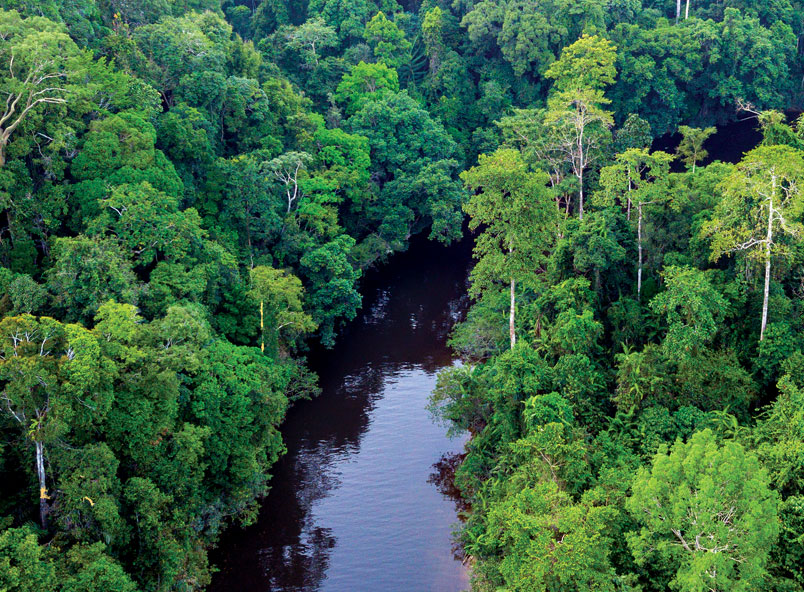



Sustaining Malaysia’s Mega-diversity for the World
Malaysia is one of 12 mega-diverse countries, being home to more than 42,000 known plant and animal species with a high level of endemism. A large part this biodiversity is hosted by vast forests, covering about 33 million ha across Peninsular Malaysia, Sabah and Sarawak.
The government recognises that our forests provide valuable assets that contribute significantly towards national socio-economic development. It has been established that Malaysians derive countless ecosystem services, health and well-being benefits from forests.
However, the size, complexity and diversity of our forests also mean that they are of global importance. They provide the global climate system with key functions such as carbon sequestration, temperature regulation and continuous oxygen production. By preserving our forests, we are also preserving habitats for flora and fauna found nowhere else in the world.
This global importance comes with a heavy burden for Malaysians. It is our responsibility to not only fully appreciate the forests, but to also protect and conserve this natural resource for humankind.
The forestry sector realises that current management efforts must address emerging issues such as climate change impacts, food security and sustaining livelihoods. To do so, we are currently reviewing the National Forestry Policy 1992 and related laws to incorporate new developments.
Malaysia is fully committed to the implementation of sustainable forest management (SFM), in line with our commitment to international conventions and treaties. SFM addresses forest degradation while increasing direct benefits to people and the environment. At the social level, SFM contributes to livelihoods, income generation and employment.
There has also been a successful thrust for certifying forest areas under the Malaysian Timber Certification Scheme. It provides for independent assessment of forest management practices and audit of timber product manufacturers or exporters, to ascertain that such products are sourced from sustainably managed forests.
This is to ensure the sustainable management of Malaysia’s natural forest and forest plantations, as well as to meet the demand for certified timber products. As at Feb 28, 2019, 4.6 million ha of natural forest and forest plantations have been covered by the Programme for the Endorsement of Forest Certification – these include 15 Forest Management Units; 7 Forest Plantation Management Units; and 362 Chain of Custody companies.
All plantations, including timber latex clones, must follow the Standard Operating Procedure (SOP) of the Forest Plantation Development Programme (FPDP) and must be developed outside environmentally sensitive areas and those with high conservation value – such as the Central Forest Spine in the Peninsular Malaysia and the Heart of Borneo in Sabah and Sarawak – except for areas designated for forest plantations.
The SOP also ensures that all plantations meet the requirements of the Forest Management Plan, Wildlife Management Plan and Environment Management Plan, so that plantation activities are compatible with long-term conservation of biodiversity and minimise human-wildlife conflict. This will further support efforts by the Department of Wildlife and National Parks of Peninsular Malaysia, to enhance management of wildlife and their habitats.
The plantation area under the FPDP does not encroach into gazetted areas for forest reserves except for areas designated for forest plantation crops in the Peninsular Malaysia, Licensed for Planted Forest area in Sarawak and areas that have been approved to be zoned as Industrial Tree Plantation in Sabah. It aims to preserve and ensure the sustainability of forest ecosystems and biodiversity.
It is evident that Malaysia has shown leadership in SFM. But I do recognise that our journey is long and there is much more to accomplish together.
Dr Xavier Jayakumar
Minister of Water, Land and Natural Resources
Malaysia
This is an edited version of the speech delivered at the opening of the ‘Hutan Kita’ exhibition on Aug 23, 2019.
Pages : 1 2